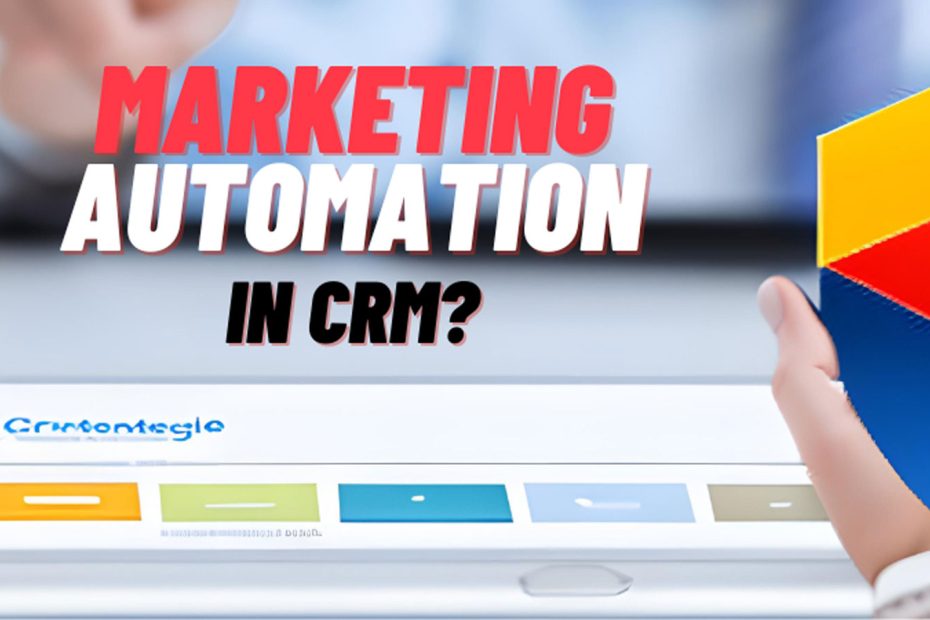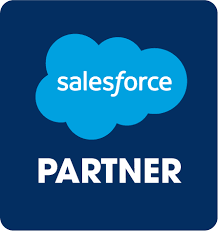CRM systems play a crucial role in the operations of both B2B and B2C companies, providing a means to efficiently manage business processes and simplify complex tasks. These systems help in the organization of customer data, support marketing endeavors, seamlessly integrate with sales activities to enhance customer satisfaction, generate valuable insights, and assist with customer support. Considering the wide range of functionalities offered by CRM software, it becomes apparent that individuals handling these systems are often burdened with a mass of important responsibilities alongside monotonous and repetitive tasks, such as senseless copying and pasting information.
By incorporating an automation platform, the tedium associated with time-consuming prospecting and customer management tasks can be eliminated. Automating your customer relationship management system ensures the smooth execution of daily activities, including calendar management, updating customer data, and data entry, among others.
CRM automation streamlines the entire marketing-to-sales process by employing a series of workflows. This encompasses the utilization of marketing automation tools, which assist in managing email marketing campaigns with visually appealing templates and synchronizing data. Additionally, sales automation tools offer features like call scheduling, workflow automation, and the automatic allocation of qualified leads. Furthermore, software bots, such as AI chatbots, contribute to customer service automation.
Another advantage of CRM automation is its ability to foster seamless communication between different marketing and sales teams, addressing a common challenge faced by businesses.
Definition of CRM Marketing Automation:
First of all we need to understand CRM Marketing Automation. Marketing automation in Customer Relationship Management (CRM Marketing Automation) refers to the use of software and technologies to automate and streamline marketing activities and processes. Moreover, it involves leveraging digital tools to manage and automate repetitive marketing tasks, such as email campaigns, social media posting, lead nurturing, and customer segmentation.
Importance of Marketing Automation for Businesses:
Marketing automation holds the key to unlocking success for businesses. By embracing automation, you open doors to efficiency, personalized experiences, and remarkable growth. Seamlessly streamlining tasks and reaching customers with precision, marketing automation fuels your journey to greatness.
- Increased Efficiency
- Personalized Customer Experiences
- Improved Lead Management
- Enhanced Customer Engagement
- Data-driven Decision Making
- Scalability and Consistency
What are the Benefits of CRM Marketing Automation:
Enhanced Lead Generation and Nurturing:
Marketing automation in CRM improves lead generation by automating processes such as lead capture, qualification, and scoring. Through automated workflows and lead nurturing campaigns, businesses can effectively engage with leads, deliver relevant content, and guide them through the sales funnel. By automating these processes, organizations can efficiently identify and prioritize high-quality leads, leading to improved conversion rates and revenue generation.
Personalized and Targeted Marketing Campaigns:
Marketing automation in CRM enables businesses to create personalized and targeted marketing campaigns. By leveraging customer data and segmentation techniques, automation tools allow for the delivery of tailored content and messages to individual customers based on their preferences, behaviors, and demographics. This level of personalization enhances customer experience, engagement, and the likelihood of conversions. Marketing automation also facilitates real-time tracking and analytics, enabling marketers to continuously optimize campaigns for maximum impact.
Improved Customer Engagement and Relationship Building:
Marketing automation in CRM facilitates enhanced customer engagement and relationship building. Through automated nurturing campaigns, businesses can deliver relevant content and offers based on customer actions and behaviors. Automation tools enable timely and personalized follow-ups, such as automated email sequences, which nurture leads and maintain communication throughout the customer journey. By consistently delivering valuable content and maintaining personalized interactions, businesses can foster long-term customer loyalty and advocacy.
Efficient Time and Resource Management:
Marketing automation in CRM streamlines marketing processes, leading to efficient time and resource management. By automating repetitive tasks such as campaign management, email marketing, and social media management, businesses can reduce manual effort, eliminate human errors, and increase productivity. This enables marketing teams to focus on strategic planning, data analysis, and creativity, ultimately enhancing overall marketing effectiveness. Automation also improves collaboration and coordination between sales and marketing teams, ensuring optimal utilization of resources.
Enhanced ROI and Revenue Generation:
Marketing automation in CRM contributes to improved return on investment (ROI) and revenue generation. By automating lead management, nurturing workflows, and personalized marketing campaigns, businesses can increase lead-to-customer conversion rates and drive sales. Automation enables businesses to effectively nurture leads, maintain consistent communication, and deliver relevant content, resulting in higher customer engagement and increased likelihood of conversions. Additionally, marketing automation provides robust measurement and analytics capabilities, allowing organizations to track and optimize campaign performance, allocate resources effectively, and make data-driven decisions that enhance ROI and revenue generation.
Best Practices for Successful Marketing Automation
Implementing marketing automation effectively requires following certain best practices to ensure success. First and foremost, businesses should clearly define their goals and objectives before implementing automation. It is essential to have a well-defined strategy and align it with business objectives to maximize the benefits of automation. Next, organizations should focus on building a solid foundation by cleaning and organizing their data. Accurate and quality data is crucial for successful automation. Businesses should also segment their audience and personalize their campaigns based on specific customer attributes and behaviors. Regularly testing and optimizing campaigns is another important practice to improve automation performance. Continuous monitoring of metrics and analytics helps identify areas for improvement and allows for data-driven decision-making.
If you are a beginner and just start a career in Marketing Automation (CRM), must enroll in this course HubSpot (CRM)- For Beginners From Basic to Advance
Additionally, automation should not replace human touch entirely. It is important to find the right balance between automated interactions and personalized human engagement. Finally, businesses should regularly review and update their automation workflows to adapt to changing customer needs and preferences. By following these best practices, organizations can achieve successful marketing automation implementation and drive meaningful results.
Case Studies: Real-Life Examples of Successful Marketing Automation in CRM
Case Study 1: Company X – Lead Nurturing and Conversion Optimization
Company X, an e-commerce retailer, implemented marketing automation in their CRM system to improve lead nurturing and conversion rates. They created a series of automated email workflows to engage and nurture leads based on their behaviors and preferences. By delivering personalized content and offers to different segments of their audience, they successfully increased customer engagement.
Through marketing automation, Company X implemented lead scoring to identify high-quality leads and prioritize their sales efforts. The CRM system tracked customer interactions and assigned scores based on engagement levels. This allowed the sales team to focus on leads that were most likely to convert, resulting in improved efficiency and higher conversion rates.
Furthermore, Company X leveraged automation to implement cart abandonment campaigns. When a customer added items to their cart but didn’t complete the purchase, automated emails were sent with personalized product recommendations and incentives to encourage them to finalize their purchase. This resulted in a significant reduction in cart abandonment rates and increased revenue.
Case Study 2: Company Y – Personalized Customer Journeys
Company Y, a software-as-a-service (SaaS) provider, utilized marketing automation in their CRM to create personalized customer journeys. They leveraged behavioral data and user preferences to deliver targeted content and nurture leads through each stage of the customer journey.
Using automation, Company Y implemented a series of onboarding emails to educate new customers about the features and benefits of their software. By delivering timely and relevant content, they improved customer onboarding and reduced churn rates.
Additionally, Company Y employed marketing automation to upsell and cross-sell to existing customers. Based on user behavior and purchase history, personalized recommendations were automatically generated and delivered via email campaigns. This approach resulted in increased revenue from existing customers and strengthened customer relationships.
Moreover, Company Y integrated their marketing automation with their customer support system. When customers submitted support tickets, automated follow-up emails were triggered to provide updates and gather feedback. This streamlined the support process and improved customer satisfaction.
Case Study 3: Company Z – Data-Driven Campaign Optimization
Company Z, a multinational retailer, implemented marketing automation in their CRM system to optimize their marketing campaigns and drive higher ROI. They utilized advanced analytics and automation tools to track and measure the performance of their campaigns across various channels.
By analyzing customer data, Company Z identified key segments and customer behaviors to create targeted campaigns. They personalized email content based on past purchases, browsing history, and demographic information. This resulted in increased open and click-through rates, as well as improved conversion rates.
Company Z also employed dynamic content in their email campaigns, automatically adapting the content based on customer preferences and behaviors. This level of personalization significantly enhanced customer engagement and improved the overall effectiveness of their campaigns.
Furthermore, Company Z used automation to conduct A/B testing on different campaign elements, such as subject lines, call-to-action buttons, and email layouts. By testing and optimizing these elements, they continuously improved the performance of their campaigns and achieved higher conversion rates.
What are the Future Trends in CRM Marketing Automation:
Now, The future of marketing automation and customer relationship management (CRM) is poised for exciting developments and advancements. Emerging trends indicate a shift towards more personalized and AI-driven automation, with a focus on delivering exceptional customer experiences. Artificial intelligence and machine learning algorithms will enable marketers to gain deeper insights into customer behavior, allowing for more effective segmentation and targeting. Automation will extend beyond traditional channels, with increased integration of voice assistants, chatbots, and smart devices. The rise of omnichannel marketing will require seamless integration of data across various touchpoints. Additionally, data privacy and security will become paramount, with stricter regulations influencing how customer data is collected and utilized. As technology continues to evolve, marketing automation and CRM will play a vital role in helping businesses stay competitive and meet evolving customer expectations.
If you want to learn the basics of CRM Marketing Automation and its importance in modern marketing strategies. Checkout Free Courses Here
Conclusion
Finally, CRM Marketing Automation systems offers significant benefits and impacts that drive business success. By automating repetitive marketing tasks, businesses can enhance operational efficiency and productivity, allowing marketers to focus on strategic initiatives. Personalized and targeted marketing campaigns enabled by automation result in improved customer engagement and higher conversion rates. Marketing automation also contributes to effective lead generation and nurturing, increasing the likelihood of converting leads into customers. Additionally, automation provides robust measurement and analytics capabilities, allowing organizations to track and optimize campaign performance, allocate resources effectively, and make data-driven decisions. Overall, marketing automation plays a crucial role in driving business success by improving efficiency, personalization, customer engagement, and ROI. It empowers businesses to streamline processes, deliver exceptional customer experiences, and achieve their marketing objectives in a competitive marketplace.





